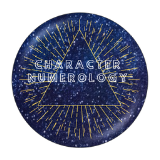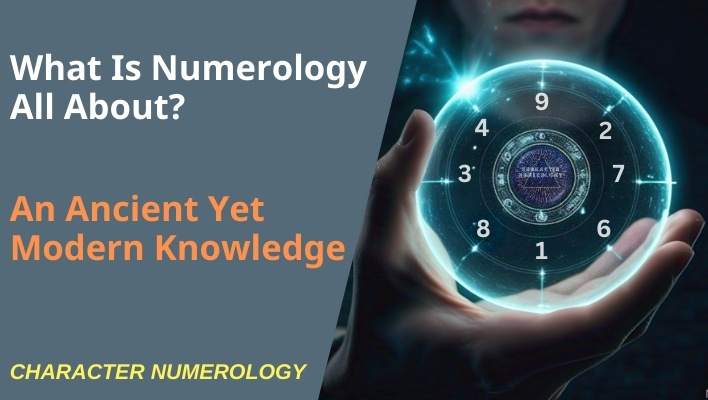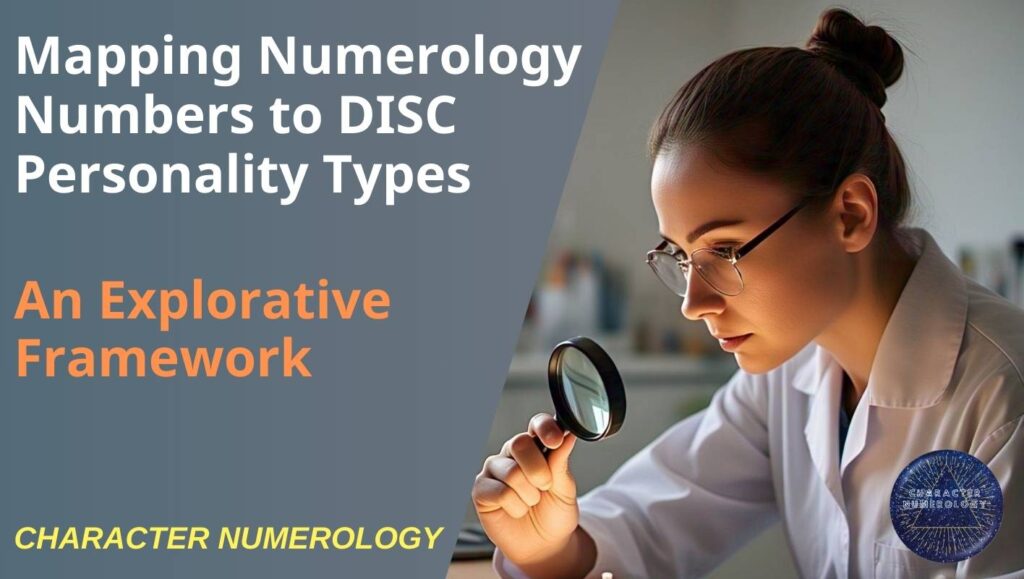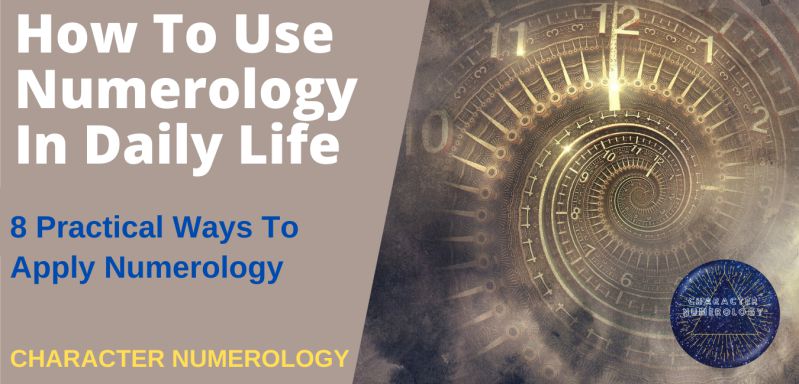Personality tests are popular tools for gaining insights into an individual’s behavioural patterns and personality traits. While there is a plethora of personality assessment tools available worldwide, we will focus on a personality test comparison between numerology and DISC profiling in this article.
By the conclusion of this article, you will gain an enhanced understanding of when you can utilise each specific personality test method.
In the field of psychology, there is a limited body of literature that explores the use of numerology as a personality testing or assessment tool. And this may be attributed to its classification as pseudoscience, mysticism, or the lack of sufficient attention given to its study.
Therefore, the goal here is also to raise awareness about the effectiveness and versatility of numerology as a powerful personality assessment tool that can be applied in diverse scenarios, including recruitment processes, evaluating a client’s communication style, and gaining insights into team dynamics.
Understanding the Role and Purpose of Personality Tests.
Before delving into the specifics, it is essential to recognise the significance of personality tests in various aspects of life.
It is a systematic assessment that aims to uncover an individual’s strengths, weaknesses, and preferences, allowing for targeted personal development or improved decision-making in various contexts.
Thus, the intent of a personality test serves multiple purposes, providing valuable insights into an individual’s characteristics, enabling better self-awareness, personal growth, and improved interpersonal relationship management. It also helps in career guidance and team building.

By gaining deeper insights into a person’s personality traits, professionals (e.g. HR or managers) and individuals (you and me) can leverage this knowledge to make informed decisions, enhance communication, and foster success.
What is Numerology and its Relevance as a Personality Test
Numerology is an ancient practice that ascribes significance to numbers. Its history dates back thousands of years across the eastern and western parts of the world, where different numerology methodologies have been developed and practised.
The most popular numerology methodology used widely is the Western Pythagorean Numerology system, and its formulation is credited to Pythagoras, the famous Greek philosopher and mathematician.
Other mainstream numerology methods include the Chaldean Numerology and Kabbalah Numerology.
Here at Character Numerology, we practise the Pythagorean Inverted Triangle Numerology and the I Ching Energy Numerology methods.
Regardless of the different numerology methods that exist around the world, the fundamental principle of numerology is that numbers are vibrational energies that shape and influence our lives.
For instance, by analysing the numerical values derived from our date of birth, we can draw insights into our personality styles and behavioural patterns.
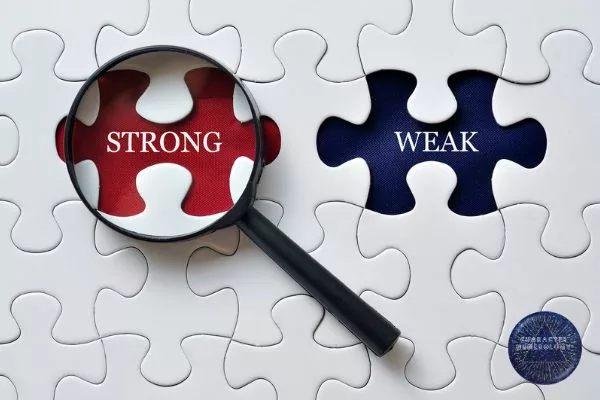
And through studying our numerology chart, we can gain further clarity on our strengths and weaknesses, enabling us to have a greater awareness on how to improve ourselves.
Understanding what our numerology chart says can also help us to have a better sense of direction to discover our life’s purpose and become a better version of ourselves.
How to Calculate Your Numerology Number?
To calculate your primary number vibration, which we call a Character Root Number, sum the numerical values in your date of birth and then reduce them to a single digit. For example, a date of birth of 8 Jun 1981 is calculated as 0+8+0+6+1+9+8+1 = 33 = 3+3 = 6.
This number vibration reveals insights into our primary characteristics. It explains our core personality traits or behavioural tendencies.
Similarly, you can apply the same knowledge to understand the people around you, where it can be a quick and powerful personality assessment tool.
To understand the meaning of each number from 1 to 9, you can refer to my earlier post, Numerology Number Meaning.
And for a more comprehensive understanding of our character, we can delve deeper by constructing our numerology chart using our birth date. This chart enables us to explore and analyse the various other number vibrations we inherit from birth.
To learn how to create your numerology chart, you can check out my older post, Numerology Calculation – The Pythagorean Method.
What is DISC Profiling?
DISC Profiling is a popular and widely recognised personality assessment tool that categorises individuals into four primary dimensions: Dominant (D), Influential (I), Steady (S), and Compliant (C).
The DISC model provides insights into an individual’s behavioural and communication styles, allowing for a better understanding of their preferences, tendencies, and interactions with others.
The origin of the DISC model dates back to the work of psychologist William Marston in the 1920s. Marston theorised that people may exhibit varying degrees of four primary behavioural traits, which he termed as Dominant (D), Influential (I), Steady (S), and Compliant (C).
Definition of D.I.S.C.
The definition of each of these four traits is as follows.
Dominant (D): Individuals with a dominant style are assertive, direct, and results-oriented. They are often focused on accomplishing tasks, taking charge, and making decisions quickly. They are driven by challenges and tend to be assertive in their communication and problem-solving approaches.
Influential (I): Individuals with an influential style are sociable, enthusiastic, and persuasive. They excel in building relationships, influencing others, and inspiring collaboration. They are energetic communicators and enjoy being in social settings. They thrive on recognition and seek to motivate and engage those around them.
Steady (S): Individuals with a steady style are cooperative, patient, and dependable. They prioritise harmony, stability, and maintaining positive relationships. They are excellent team players, known for their reliability and loyalty. They prefer a calm and consistent work environment and value cooperation and consensus.
Compliant (C): Individuals with a compliant style are analytical, detail-oriented, and systematic. They place emphasis on accuracy, precision, and following established procedures. They are diligent in their work, focused on quality, and enjoy solving complex problems. They have a cautious approach and value accuracy and organisation.
In What Areas Can We Apply DISC Profiling?
DISC Profiling is utilised to understand behaviour and communication styles in various contexts, such as personal development, team dynamics, leadership, workplace effectiveness, and client profiling.
By assessing an individual’s dominant DISC style, professionals gain insights into their preferred work environment, decision-making approach, and communication style.
For example, in the financial services industry, financial consultants can apply the DISC model to understand their clients’ communication styles. This can help them improve their sales approach and closing rate.

However, the process of determining a client’s communication style in the above example relies on engaging in conversations with the client to deduce their potential DISC profile.
It may not be entirely accurate, but applying the framework of DISC profiling helps the financial consultant to adjust themselves towards the client’s communication style.
DISC assessments typically involve individuals responding to a series of questions or statements, which are then analysed to determine their primary DISC style and the relative strengths of each dimension.
The results provide a profile highlighting an individual’s preferred style, enabling them to gain self-awareness and adapt their behaviour to interact with others effectively.
Organisations and professionals often use DISC Profiling to enhance teamwork, improve communication, and develop leadership skills.
By understanding the behavioural tendencies of team members, managers can assign roles that align with individual strengths, enhance collaboration, and create a harmonious work environment.
Additionally, individuals can use their DISC profiles to identify areas for personal growth, enhance their communication skills, and adapt their behaviours to achieve better outcomes in various interpersonal and professional interactions.
Overall, DISC Profiling offers valuable insights into behaviour and communication styles, empowering individuals and organisations to build effective relationships, improve teamwork, optimise sales performance, and achieve better outcomes in diverse settings.
Numerology as a Personality Assessment Tool
As explored in the earlier section of this article, numerology can help us understand our personality traits or behavioural patterns and identify our strengths and weaknesses.
The application of numerology as a personality assessment tool holds excellent value for both organisations and individuals.
HR professionals or managers of organisations can utilise numerology to pre-assess the personality of potential candidates they are hiring to see if they may be a good fit for the team or compatible with the hiring manager.
They may also apply numerology to analyse team members within the workforce to determine compatibility between members, improve team dynamics, and help in career counselling. Managers can also appreciate their team better and assign tasks that their staff may be more proficient at.

The HR or Training department of an organisation may run numerology workshops for their sales team to equip them with additional skills to know their clients better.
Sales personnel can benefit from this additional skill set to assess their clients’ communication styles and adjust their sales approach to improve their performance accordingly.
As you may have observed, the majority of the above applications are also commonly practised by various personality assessment tools such as the DISC model.
Advantages and Disadvantages of using Numerology as a Personality Test
Let us now examine some advantages and disadvantages of using numerology to conduct personality tests.
Advantages of Numerology as a Personality Assessment Tool
The most significant advantage of employing numerology for personality assessment, distinguishing it from most, if not all, other methods, is that it allows you to gain insights into an individual’s character without the need for direct interaction or requiring the person to respond to a series of questions or statements.
And it is possible to achieve an accuracy of about 70% to 90%, depending on the proficiency and experience of the interpreter or numerologist.
But, to do the above, we must first have the individual’s date of birth, which is the primary limitation of this approach.
Let us use recruitment as an example to illustrate. The date of birth is sometimes available in a candidate’s resume for job applications. Where available, the HR specialist or hiring manager trained in numerology may pre-assess the candidate’s personality while going through the work experiences.
The ability to pre-assess a candidate’s personality yields significant benefits for HR or hiring managers.
It helps in making informed decisions regarding whether to contact a candidate for an interview. By assessing the candidate’s personality traits, HR or hiring managers can determine if their personality profile aligns with the job requirements.
Imagine if a candidate does not possess the desired personality traits for the role, it may be counterproductive to proceed with an interview even though the candidate may satisfy the necessary job requirements. The assumption here is that multiple candidates have similar qualifications and work experience to choose from.
Another scenario arises when faced with the challenge of choosing between two or more candidates after conducting interviews. In this situation, numerology can serve as a valuable tool for validating the personality traits of each candidate and ultimately deciding who to hire.
By integrating the insights derived from numerology analysis with the information gathered through the interview and other personality assessment tools such as DISC Profiling, numerology serves as an additional data point that contributes to making well-informed decisions.
Disadvantages of Numerology as a Personality Assessment Tool
It is important to emphasise that a key drawback of utilising numerology as a personality assessment tool is that it can give rise to the potential for discrimination or bias.
Taking the hiring process example illustrated above, it is the HR personnel or hiring manager who may assess the candidate’s personality without the latter’s knowledge.
The candidate need not sit through a traditional personality test comprising a series of questions or statements.
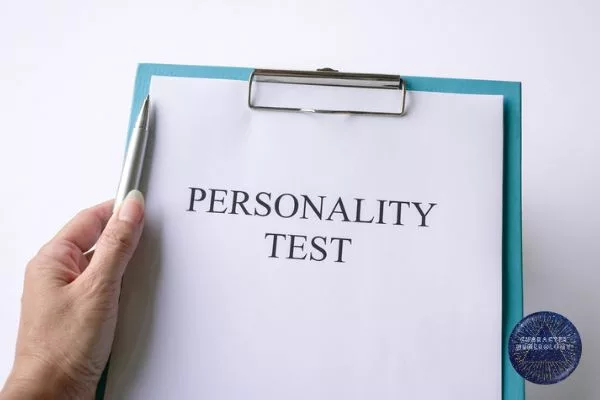
From the hiring side, the ability to pre-assess a candidate’s personality without needing direct interaction is an inherent advantage in terms of efficiency.
However, this can result in stereotyping where the interviewer has a predisposed impression of what constitutes good number vibrations to look out for in its selection process. Whether or not this becomes an act of discrimination or bias is debatable.
The counter-argument is that having a candidate sit through and answer personality test questions is also a form of stereotyping, an attempt to categorise people.
Therefore, the end result is the same regardless of numerology, DISC profiling or other forms of personality tests.
The distinction lies in the timing aspect, where numerology provides the hiring side with a time-saving opportunity to pre-assess a candidate’s personality, helping them decide whether to proceed further with an interview.
In contrast, traditional personality tests typically require the hiring side to arrange an interview before they can assess the candidate’s personality traits using methods such as DISC profiling or other similar techniques.
Nevertheless, the issue of discrimination depends on the context of using numerology and the user’s mindset.
When to Use Numerology or DISC Profiling?
Comparing the features of numerology and DISC profiling can help us gain better insights into when we can use which method to assess an individual’s personality.
The table below presents a comprehensive comparison:
| Comparison | Numerology | DISC Profiling |
|---|---|---|
| Limitation | Requires date of birth to assess personality | Requires individuals to work through a set of questions or statements |
| Interaction Requirement | No direct interaction required. | Interaction and response to questions are required. |
| Time Efficiency | Able to perform analysis of an individual’s personality traits by the assessor without the individual’s involvement or awareness. | Requires the individual to spend 10-15 mins to go through a set of questions or statements and tabulate the DISC Profile. |
| Cultural Sensitivity | Not culturally dependent | May require cultural adaptation |
| Accuracy | Highly accurate | Highly accurate |
| Risks of Inaccurate Results | Inadequate knowledge and experience by the assessor in interpreting the number meanings. Possibility that the personality traits assessed from the numerology chart do not match the true personality of the individual due to the influence of other acquired number vibrations (e.g. mobile number, vehicle number) or environmental factors that drastically alter the individual’s personality profile. | Self-reporting bias: The test relies on the individual’s self-perception and willingness to provide honest responses. Social desirability bias: Test-takers may have a tendency to respond in a way they believe is socially desirable or aligns with the expectations of the assessor or organisation. Cultural or language differences: The cultural and language variation may lead to potential misunderstandings or misinterpretation of certain responses required in the test. |
| Possible Application Areas | Recruitment, self-improvement, client communication, Adaptation of learning styles for students | Recruitment, team building, leadership development. client communication |
As seen from the table above, the underlying limitation of numerology is that we need to know the individual’s birth date before we can perform any form of personality assessment. Hence, in the event that the date of birth is not available, the fallback is to use DISC profiling.
If the birth date is available, numerology can then be employed for personality assessment either in isolation or together with DISC profiling.
The combined insights from both methods can reveal even greater insights towards understanding an individual’s personality traits.
Key Takeaways
I hope that you have gained valuable insights from this post. To summarise the key takeaways that we have discussed, we have:
- Explored the role and applicability that numerology can play as a personality assessment tool.
- Examined the advantages and disadvantages associated with using numerology as a personality assessment tool.
- Compared the features between numerology and DISC profiling to gain a better understanding of when each method can be utilised.
Now, if you’d like to learn how we can map each numerology number to the DISC personality types, you can check out my next article here!
Feel free to leave a comment if you have any thoughts, questions, or experiences. I would be delighted to address them to the best of my abilities.
If you are a hiring manager and in the process of choosing candidates for your workforce, check out our Candidate Compatibility Numerology solutions.
Follow Character Numerology’s social media channels to stay updated on new content releases exploring the various applications of numerology.
You can also sign up for my newsletter and receive a free 30-Day Personalised Daily Energy Outlook. Refresh the page, and you will see the signup form.
It is a daily guide on how I perceive the day’s energy vibration, and I believe it can help you in seeking inspiration to approach your day! It also includes monthly and yearly calculations and commentary to give you a bigger-picture overview.
And if you’d like to continue receiving the daily guide after 30 days, you can also check out the premium service here.
